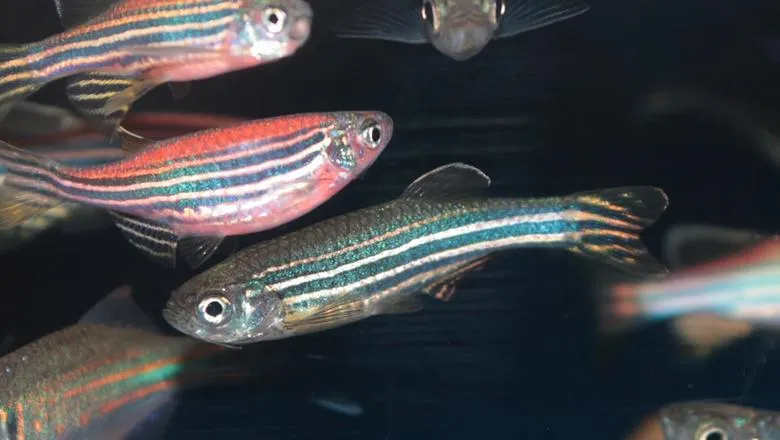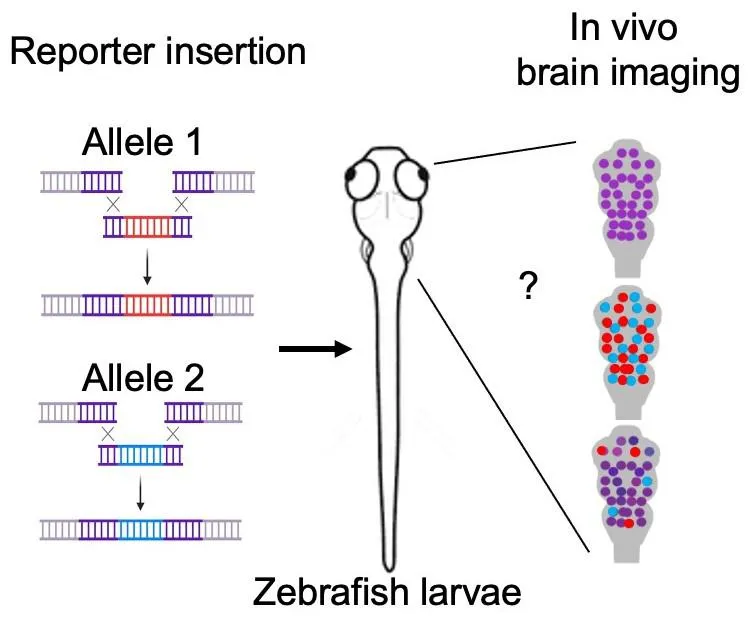I am excited to start this novel project, which combines gene editing, advanced imaging, animal behaviour and computational biology expertise at the Centre for Developmental Neurobiology to visualise and investigate the role of alle-specific gene expression in the brain of a living animal. Although this work addresses a basic biological question, the outcome has the potential to critically inform our understanding of the severity variability for certain mental illnesses seen across the affected human population.”
Professor Robert Hindges, Team Lead, Professor of Developmental Neurobiology
09 November 2023
BBSRC Pioneer Award funds research into the impact of allele-biased gene expression on animal physiology
Professor Hindges, Professor Houart, and Dr Ch’ng at the Centre for Developmental Neurobiology will establish a novel zebrafish model to study the consequences of imbalanced gene expression.

The 2-year project “Measuring impact of allele-biased gene expression on animal physiology” will generate zebrafish models to study how Allele-Specific Expression (ASE) in the brain affects behaviour. The insights from this project have great potential to explain physiological and behavioural variabilities across individuals.
Every gene in the human genome has two alleles, one paternal copy and one maternal copy. It is expected that both alleles would be expressed similarly, however, this is not always the case. One exception to this is ASE, where one allele is preferentially expressed. This means that mutations occurring in one allele could have differential effects depending on the level of expression in the mutated allele.
Recent large-scale RNA sequencing detects that ASE occurs in genes expressed in the human brain. The extent and consequence of brain ASE, however, are still unknown as no study to date has been able to live observe and measure the impact of ASE at tissue and organismal levels. This project will use zebrafish to generate a live animal model to study ASE throughout the life cycle and perform physiological and behavioural observations.

This project aims to determine whether ASE is truly random, whether there is a pattern to allele preference across development, whether it affects brain function in predictable ways and whether it leads to predictable behaviour traits.
The UK Research & Innovation Biotechnology and Biological Sciences Research Council Pioneer Award is given to an original, early-stage research project with the potential to transform our fundamental understanding of biological systems. The project should explore visionary and untested ideas and must be:
- be original and visionary, challenging current thinking and paradigms
- focus on revealing novel insights and theories relating to our fundamental understanding of biological systems
- be early-stage and untested



